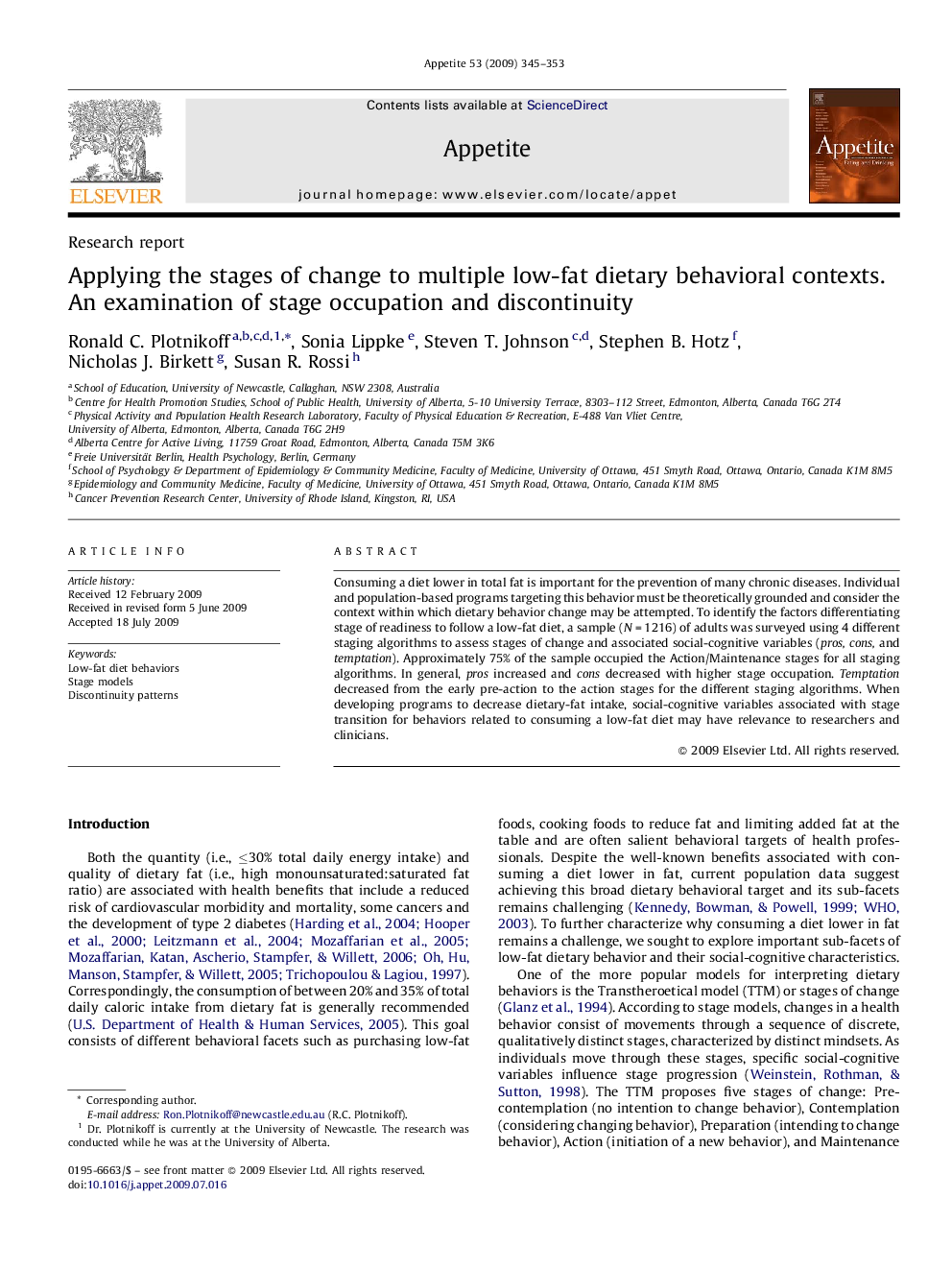| Article ID | Journal | Published Year | Pages | File Type |
|---|---|---|---|---|
| 940979 | Appetite | 2009 | 9 Pages |
Consuming a diet lower in total fat is important for the prevention of many chronic diseases. Individual and population-based programs targeting this behavior must be theoretically grounded and consider the context within which dietary behavior change may be attempted. To identify the factors differentiating stage of readiness to follow a low-fat diet, a sample (N = 1216) of adults was surveyed using 4 different staging algorithms to assess stages of change and associated social-cognitive variables (pros, cons, and temptation). Approximately 75% of the sample occupied the Action/Maintenance stages for all staging algorithms. In general, pros increased and cons decreased with higher stage occupation. Temptation decreased from the early pre-action to the action stages for the different staging algorithms. When developing programs to decrease dietary-fat intake, social-cognitive variables associated with stage transition for behaviors related to consuming a low-fat diet may have relevance to researchers and clinicians.
